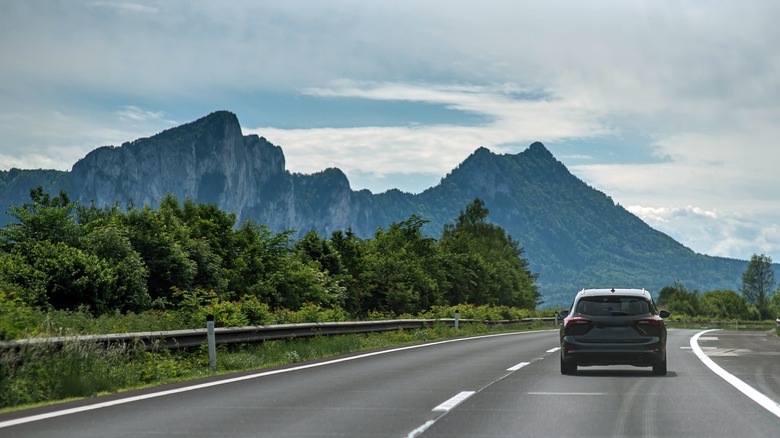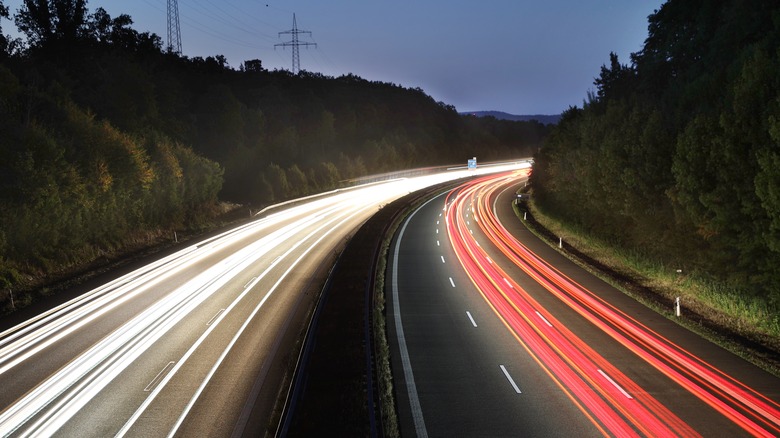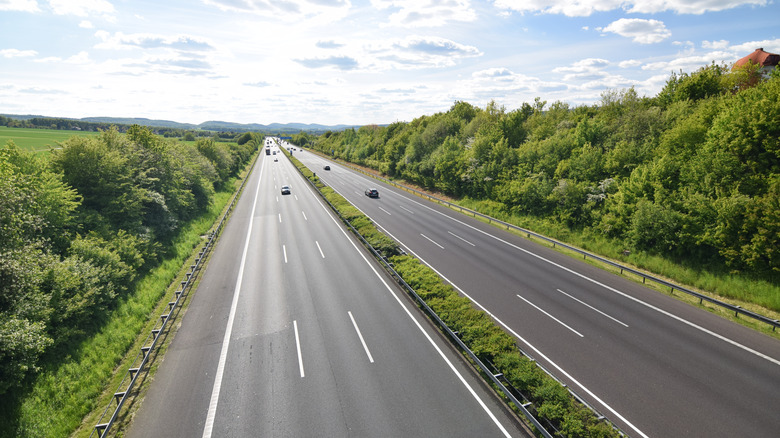Planning Planes, Trains And Automobiles
Lauren Richards
Thrill seekers who also have a love for driving might find themselves in paradise when they discover the autobahn in Germany. This 8,000-plus-mile highway has long allowed its drivers to reach extreme speeds with no penalties, so if you’ve dreamed of testing the speed limits of your car, this could be the spot for you. Because of the allowance of maximum speeds, you can zoom through the country in record time, whizzing by the countryside and stopping in some of Germany’s major cities. It’s a fantastic way to take in the country’s scenic beauty.
With all of this being said, the autobahn is not a strip of road without regulations. Rules do apply, as do suggested speed limits, especially near metropolitan areas. Luckily, the suggested speed limits are made clear on large signs — you just have to be sure you can see them before whizzing by. If you’re gearing up to test out the autobahn, it’s best to inform yourself of its laws — and you can start with making sure you have a full tank of gas.
Keeping a full tank

Cars and Travels/Shutterstock
If you find yourself slowing down and running out of fuel while on the autobahn, you’re likely to get in trouble. Running out of gas on this road is against the law, and doing so will result in hefty fines. Since you’re able to check your gas levels and fill up accordingly before ever getting onto the autobahn, there’s no reason you should run out of gas. German officials apply this logic to justify the fines.
In addition to fines, you pose a risk to both yourself and other drivers. If everyone is flying by at speeds exceeding 80 mph and you’re stopped either in the middle or on the side of the road, you increase the chance of causing a potentially deadly accident. So if you plan on driving on the autobahn, mind your fuel levels before heading out. Ideally you’ll have a full tank of gas, and if you don’t, be sure you have enough to make it to the next gas station.
Additional rules and regulations

Germanroam/Shutterstock
Other important rules to note and driving habits to avoid include passing people on the right side of the road — doing so is illegal — stopping on the shoulder of the road, forgetting to use your blinkers when you merge, and making a U-turn. Each of these pose a great risk to yourself and other drivers and should be avoided at all costs.
You might think that miles of road without a set speed limit is dangerous and could result in high numbers of fatal crashes. This assumption is incorrect. Less than 10% of Germany’s deadly crashes occur on the autobahn, according to Ultimate Driving Tours. One of the reason that may contribute to this low statistic is the state of the road. It remains smooth, and therefore it’s easier to drive on. Additionally, the process of obtaining a German driver’s license is a tedious one with strict testing, and is believed to result in better drivers.
If you love road trips and the thrill of speed, consider visiting Germany and hopping on the autobahn — just remember the rules and regulations to avoid being bogged down with a heavy fine.

